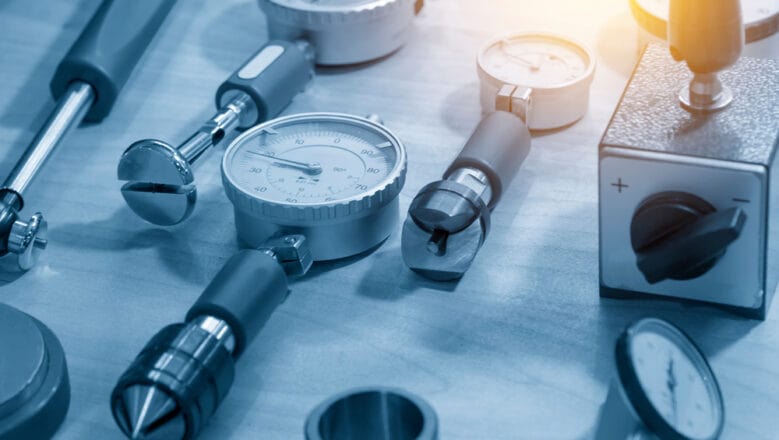We live in a world driven by money. The field of metrology is no different. Metrology is a business in and of itself, plus, it plays a part in almost every other business in existence. The science of measurement impacts how products are made, how they function, how they break down, and how they are fixed. Each of these steps come with a cost and that cost determines the success of a business. Today we are going to explain what different costs can be associated with metrology at large, and why knowing the potential costs matters.
According to the American Society for Quality (ASQ): “The ‘cost of quality’ isn’t the price of creating a quality product or service. It’s the cost of not creating a quality product or service.” What all companies and businesses seem to be striving for is that perfect balance between keeping costs low, while keeping quality high, in order to protect themselves from further costs. Specific measurements inevitably involve these issues when a company is trying to produce quickly enough without sacrificing a well done process. General metrology also must keep up with the times and prioritize speed and efficiency to a certain extent, yet maintain a high degree of accuracy and precision.
Above and beyond these concerns, metrology proves itself as a vital player in the game of cost for other fields and companies. By utilizing the advantages of measurement as a science, a business can reduce overall cost of their products while ensuring quality. Better operation, higher productivity, and improved performance all result from well implemented metrology standards and techniques. Whether considering the financial, the technical, or the employment portion of a business, a process of measurement will be involved. Utilizing metrology throughout numerous areas within a company will prove an excellent strategy for lowering costs.
Importantly, manufacturers must not start with implementing metrology at the level of quality control. Metrology needs to be present from the very beginning during the design stage of any production. Inevitably, final performance of built parts, machines, devices, or further measurement tools will be improved once the science of measurement is taken into consideration. Productivity will go up and operation costs will go down, which is ultimately the goal of most business ventures.
One specific area concerning costs that warrants mention is that of rejects. Rejects are products that are not usable, faulty in some way, or generally must be discarded. Rejects are nothing but wasted money, time, and material. Another negative outcome of rejects is dissatisfied and potentially lost customers. While some rejects are unavoidable to an extent, the majority can be prevented through well-thought out and well-applied metrology. Improved methods of measurement will help decrease the risk of building rejects.
The field of metrology makes a major contribution to the productivity of a business through maintenance of costs. Whether using measurement in the creation of parts, during the production process, when making design decisions, or when maintaining regulatory demands, metrology increases business effectiveness, innovation, and standards, all while lowering costs. Whether you work in the food industry, electronics, biology, aeronautics, mechanics, chemistry, pharmaceuticals, environmentalism, medicine, agriculture, or numerous other specialties, optimal metrology will help you attain optimal costs and avoid unnecessary waste.

